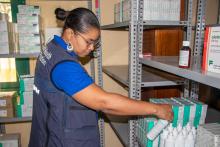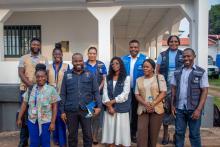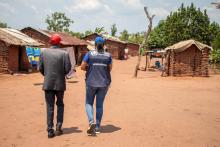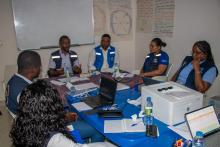WHO and UNHCR collaborate to Strengthen Health Services for Refugees in Lunda Norte
In a joint mission with the United Nations Refugee Agency (UNHCR), the World Health Organization (WHO) conducted an important assessment of health services in refugee settlement in Lunda Norte province, Angola, from 30 September to 2 October. This mission aimed to evaluate the quality and collaboration of health services provided at the Lôvua Refugee Settlement, a home to thousands of refugees from the Democratic Republic of Congo (DRC) since 2017.
The Lôvua settlement was established following the 2017 emergency, where approximately 35,000 Congolese refugees fled violence in the Kasai region of the DRC, seeking safety in Angola. Today, around 9,000 of those refugees remain in the province, with 6,000 residing in the Lôvua settlement.
The WHO team collaborated closely with key partners, including UNHCR’s Head of Office in Lunda Norte, Ms. Jasmine Fernanda Rodríguez and the Evangelical Church of Brothers in Angola (IEIA), UNHCR’s health partner in the region. They focused on understanding the services available to both refugees and the host population, particularly at the Lôvua clinic, which provides comprehensive Primary Health Care services such as vaccinations, maternal and child health care, treatment of endemic diseases including referral to nearby hospitals, and psychosocial support. Serving approximately 250 patients weekly, of which 30% are from the host community, the clinic plays an important role despite ongoing funding and resource challenges.
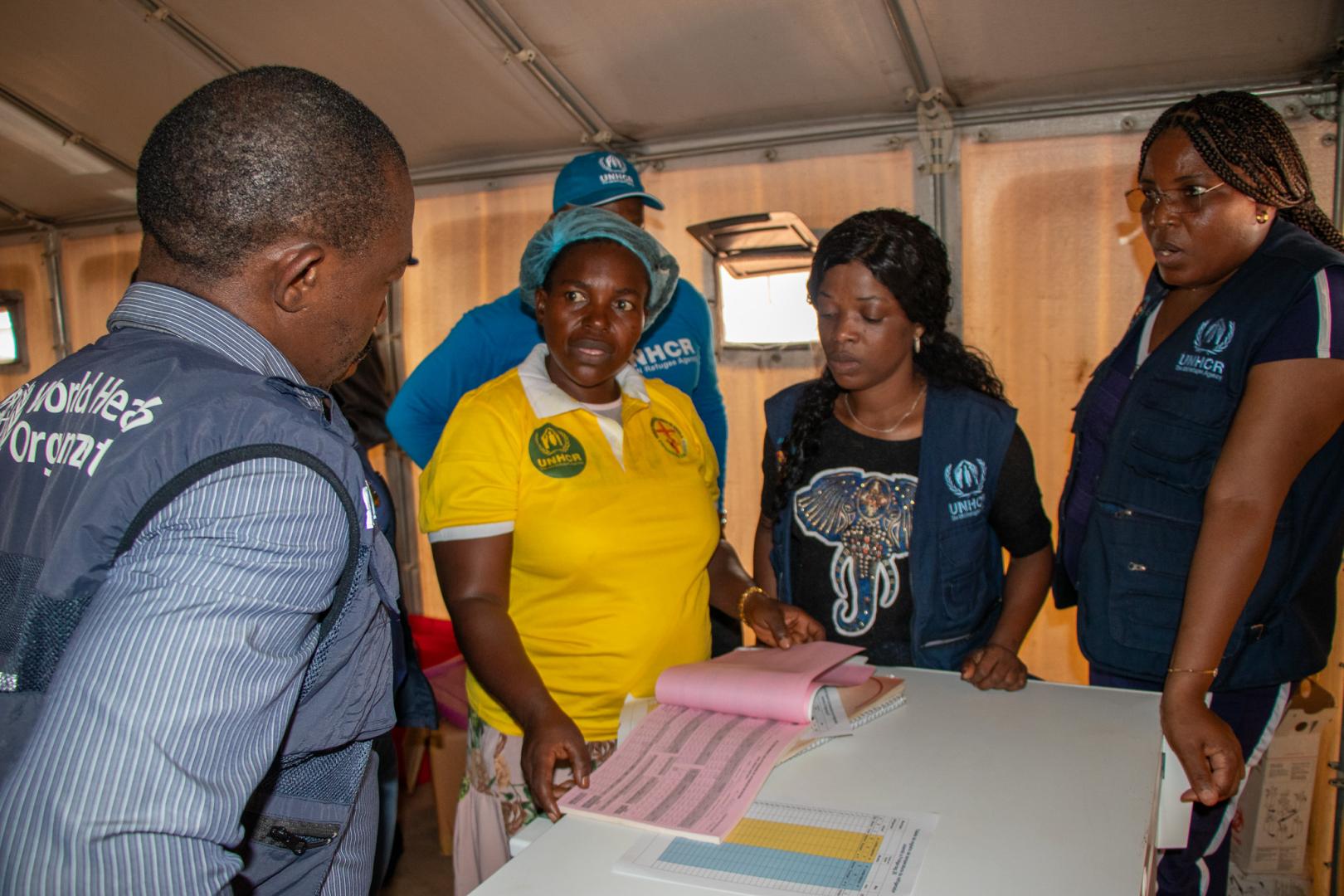
©WHO/Omotola Akindipe
Additionally, the team met with the Vice Administrator of Lôvua Municipality, Mr. Maliangue Alberto, to discuss strengthening partnerships and health system development in the region. WHO also visited the Lôvua health center and the Municipal hospital, currently undergoing rehabilitation, showcasing ongoing efforts to improve health infrastructure.
A key highlight of the mission was the visit to the Health Technical Institute of Lunda Norte, where discussions with the school’s director opened opportunities for future collaboration in health promotion and capacity building. The institute’s efforts to connect students with other tertiary institutions in Angola such as Rainha Njinga A Mbande in Malanje, with which WHO signed a Memorandum of Understanding on 11 September 2024, and expand its reach to vulnerable areas were praised as important steps toward improving healthcare education.
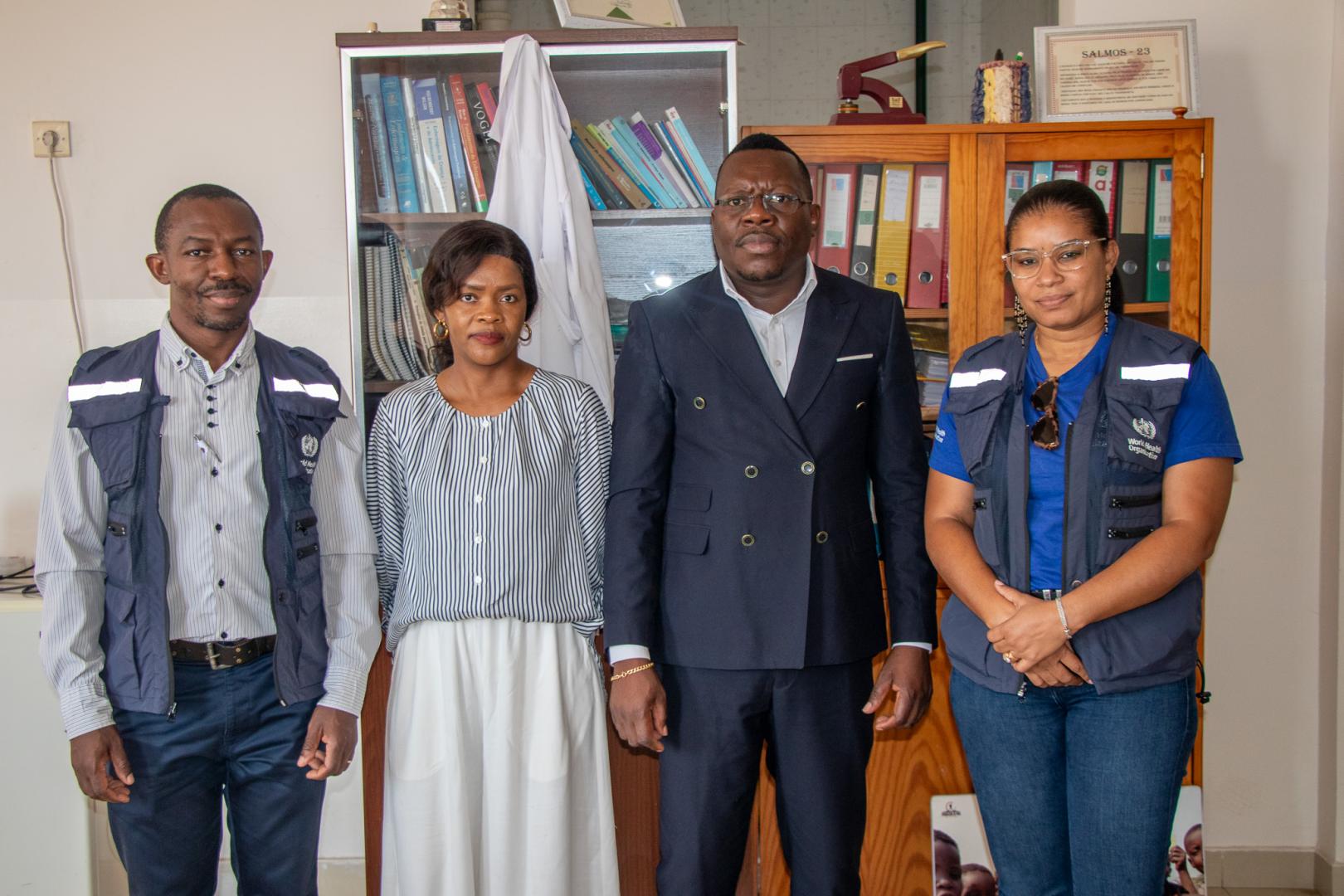
©WHO/Omotola Akindipe
This mission underscores WHO’s commitment to ensuring that refugees and local communities in Lunda Norte have access to quality healthcare. In partnership with UNHCR and local organizations, WHO remains dedicated to supporting health services that leave no one behind, as part of broader efforts toward achieving Universal Health Coverage in Angola.
With a focus on sustainability and resilience, WHO and its partners continue to work toward supporting the Government of Angola in building a stronger healthcare system for all, prioritizing those in the most vulnerable situations.




